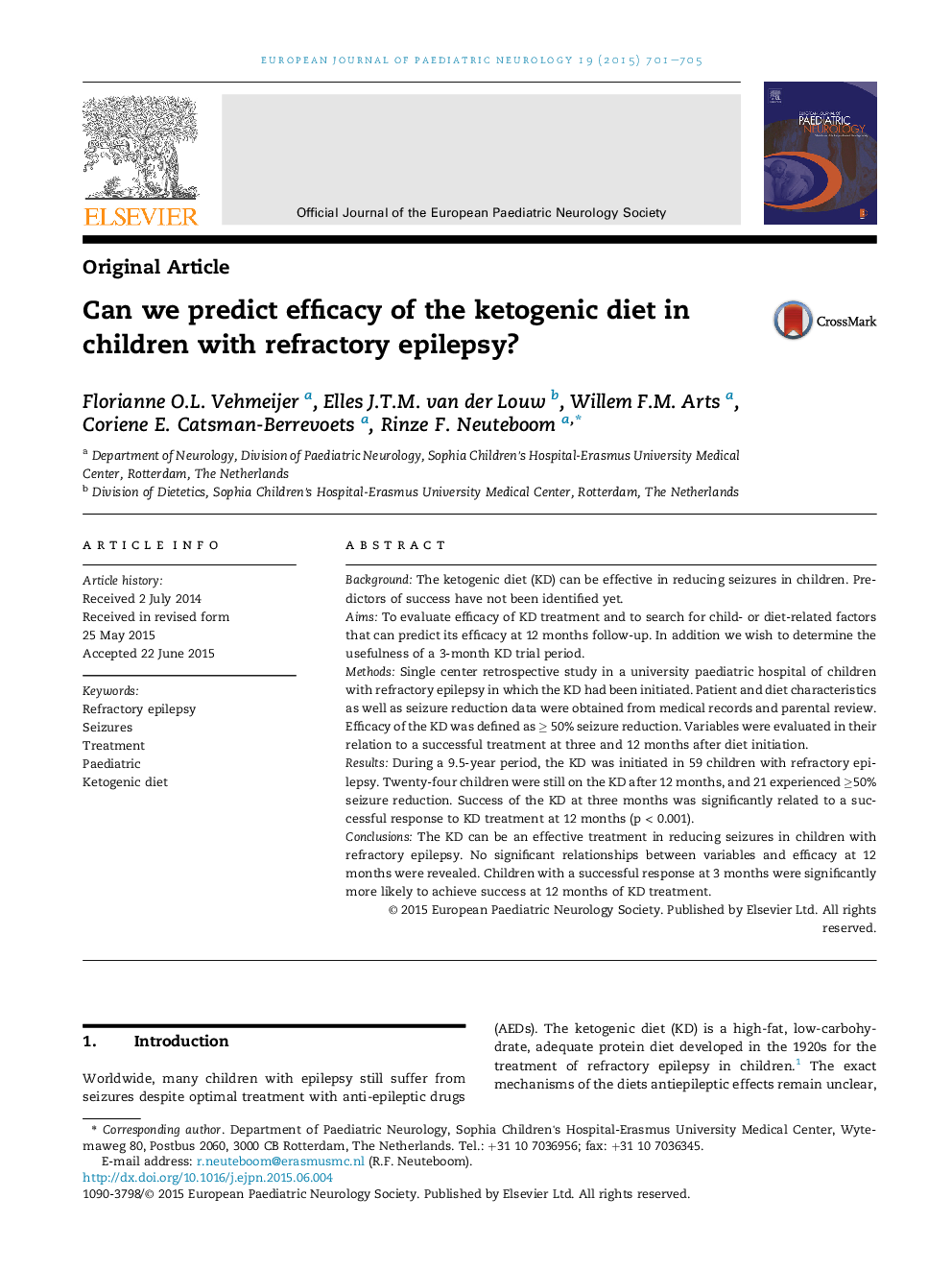| Article ID | Journal | Published Year | Pages | File Type |
|---|---|---|---|---|
| 3053601 | European Journal of Paediatric Neurology | 2015 | 5 Pages |
•36% of children with refractory epilepsy had ≥50% seizure reduction at 12 months.•No significant relationships between variables and efficacy at 12 months were revealed.•Ketogenic diet response at 3 months was significantly related to success at 12 months.•The ketogenic diet should be prescribed in all children with refractory epilepsy.
BackgroundThe ketogenic diet (KD) can be effective in reducing seizures in children. Predictors of success have not been identified yet.AimsTo evaluate efficacy of KD treatment and to search for child- or diet-related factors that can predict its efficacy at 12 months follow-up. In addition we wish to determine the usefulness of a 3-month KD trial period.MethodsSingle center retrospective study in a university paediatric hospital of children with refractory epilepsy in which the KD had been initiated. Patient and diet characteristics as well as seizure reduction data were obtained from medical records and parental review. Efficacy of the KD was defined as ≥ 50% seizure reduction. Variables were evaluated in their relation to a successful treatment at three and 12 months after diet initiation.ResultsDuring a 9.5-year period, the KD was initiated in 59 children with refractory epilepsy. Twenty-four children were still on the KD after 12 months, and 21 experienced ≥50% seizure reduction. Success of the KD at three months was significantly related to a successful response to KD treatment at 12 months (p < 0.001).ConclusionsThe KD can be an effective treatment in reducing seizures in children with refractory epilepsy. No significant relationships between variables and efficacy at 12 months were revealed. Children with a successful response at 3 months were significantly more likely to achieve success at 12 months of KD treatment.
